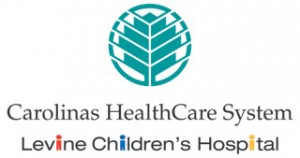We recently chatted with Dr. Stephanie Richter, a pediatrician at Levine Children’s Hospital‘s Charlotte Pediatric Clinic, about tween/teenage girls and health. Thank you so much to Dr. Richter for talking us through it – wish we could put her on speed dial whenever we had questions with our teen girls!
At what age can you expect your daughter to want to switch to a female doctor?
In our practice, we have found that many of our patients continue to see the same pediatrician they have seen since infancy, regardless of the sex of the doctor. Although some girls (and boys!) have strong feelings about switching to a same-sex doctor, during the “tween” years, what seems to make the biggest difference is the communication styles of the patient and doctor. As kids grow and change, each will develop her own style.
This may be very different from the communication styles of their caregivers. As the relationship evolves over the years from primarily caregiver/pediatrician to child/pediatrician, the child may feel more comfortable switching to another provider. We as pediatricians certainly understand and support this.
At what age should you consider the HPV vaccine for your daughter?
The current recommendation is the start the HPV series at age 11-12 years. This recommendation is the result of a vast amount of research and analysis along with consideration by many different specialties within medicine. The goal is to get kids vaccinated way before they would ever be exposed to the HPV virus. Since this is a three-part vaccine, this is believed to be the best timing to make sure the series is completed. Of course, each family should discuss the best timing of the vaccine with their health care provider.
What are the pros/cons of HPV vaccine?
The pros- this is a vaccine that ACTUALLY PREVENTS CANCER! The rate of HPV infection is so high that even if your child waits until marriage to have sex, the chances are still very great that they will become infected. There are an estimated 79 million Americans who are currently infected with estimated 14 million new cases per year. The side effects are minimal with pain at the injection site being the most common. This vaccine has been found to be safe with no long-term effects. I have given this vaccine to my own children and I recommend it for all of my patients.
Is there a certain age girls should start seeing a gynecologist?
This depends on the services provided by each pediatrician. The American College of Obstetricians and Gynecologists recommends that the first visit should be between the ages of 13 and 15 years. However, most pediatricians are experienced with external examination of the breasts and genitalia. Most teens do not require an internal exam, unless certain problems arise. The current recommendation is for the first pap smear to be done at age 21 years. Likewise, most pediatricians are comfortable discussing common menstrual problems and concerns about puberty. Some pediatricians are equipped to deal with all gynecologic concerns, including birth control, but others will refer patients to a gynecologist. This is something that is important for caregivers and patients to discuss with the pediatrician around the onset of puberty to determine what the policies are for each practice.
What types of things should a mother tell her daughter before her first appointment?
I believe it is always important to be up-front with kids when discussing visits to any kind of health care provider. Most teens will not require an internal exam, but there are exceptions to this. Caregivers should make sure they understand what kind of exam will be done, and attempt to be as honest as possible about this with their child. When a pediatrician has been examining the breasts/chest and genitalia of a patient since birth, kids are aware that this is going to happen at each check up. This is why the American Academy of Pediatrics recommends that the gyn exam should happen in the patient’s “medical home” or regular doctor’s office. While most teens are very anxious about having their genitalia examined, they have learned to expect this at their check ups with their regular doctor. It is also very important for a pediatrician or OB-Gyn to explain the type of exam that will be done and make sure the patient has had all of her questions answered before proceeding with the exam.
What questions should a mother ask her daughter’s gynecologist after her daughter’s visit?
This is a somewhat difficult subject…in my office, we see patients until they are 21 years old. I believe that the most important thing for teens/young adults is to feel that they can be honest with their doctor. Obviously if we are talking about a young pre-teen, it is appropriate for the caregiver to be in the room during the discussion and exam. However, as patients age it becomes important to have the caregiver be out of the room for part of the discussion, and possibly even during the exam to be sure that the teen/young adult feels comfortable being completely honest about the history. The pediatrician can’t provide appropriate care of the teen won’t give an honest history. My feeling with my own children is that I want them to have the best possible medical care. I know that I can trust my children’s pediatrician to make these decisions, even if she can’t share every detail that was discussed with them while I was out of the room. This is why it is so important for caregivers to have a long-standing relationship with their pediatrician, so they know that this is a person who has their child’s best interest at heart.
Dr. Stephanie Richter and her husband, Dennis, have two teenage children, Sophia and Grant. Originally from Willis, TX, Dr. Richter has been in Charlotte for eighteen years. She graduated from the University of Houston, Baylor College of Medicine and completed her residency at UCSD. In between her busy schedule as a mom, wife, and pediatrician, Dr. Richter volunteers as a dog trainer/exerciser at CMPD Animal Control, practices yoga, and loves to scuba dive and hike.
![]()
Dr. Stephanie Richter
Charlotte Pediatric Clinic
Levine Children’s Hospital
Facebook
Instagram
Twitter



